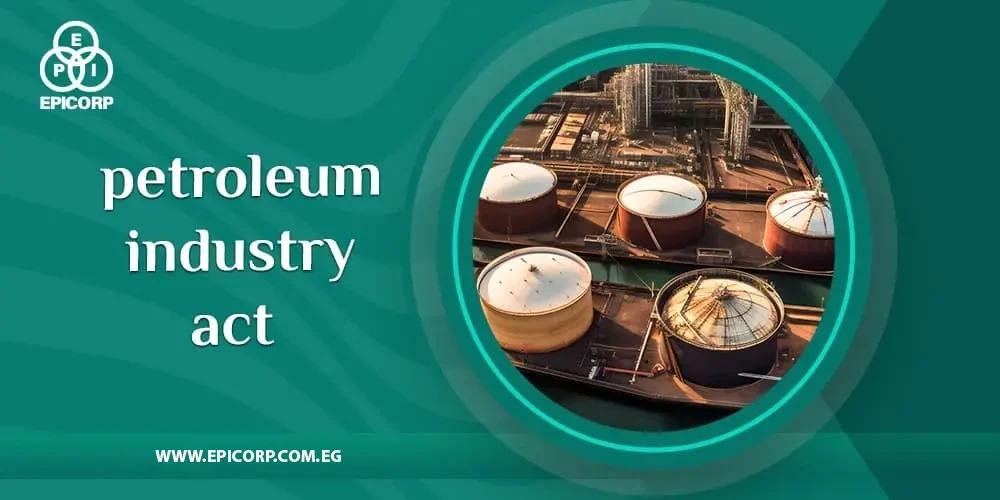The petroleum industry act is a legislative framework designed to govern and regulate the exploration, production, refining, distribution, and utilization of petroleum resources within a specific jurisdiction. This comprehensive legislation typically outlines the rights, obligations.
And responsibilities of stakeholders involved in the petroleum sector, including government agencies, companies, and local communities. The primary objectives of such acts are to promote the sustainable development of petroleum resources, ensure efficient and equitable resource management, protect the environment, and maximize socioeconomic benefits for the nation.
Table of Contents
ToggleWhat is the Petroleum Industry Act?
The petroleum industry act (PIA) is a significant piece of legislation enacted to govern and regulate the Nigerian petroleum industry. It represents a comprehensive overhaul of the legal and regulatory framework that governs the exploration, production, refining, distribution, and utilization of petroleum resources in Nigeria.
The PIA aims to modernize and streamline the operations of the petroleum sector, attract investment, stimulate growth, and ensure transparency, accountability, and efficiency in the management of petroleum resources.
Key provisions of the PIA include the establishment of regulatory bodies such as the Nigerian Upstream Regulatory Commission (NURC) and the Nigerian Midstream and Downstream Petroleum Regulatory Authority (NWDPRA), as well as the restructuring of state-owned entities like.
The Nigerian National Petroleum Corporation (NNPC) to enhance their commercial viability and governance. Overall, the Petroleum Industry Act represents a significant milestone in the reform efforts aimed at transforming Nigeria’s petroleum industry for the benefit of its citizens and the economy as a whole.
Read also: Petroleum Industry Definition.
What are the three major components of petroleum industry?
The petroleum industry act typically comprises three major components:
1. Upstream Sector:
This sector involves the exploration, development, and production of crude oil and natural gas. Activities in the upstream sector include geological surveys, drilling exploratory wells.
And operating oil and gas fields. Companies engaged in upstream activities are often referred to as exploration and production (E&P) companies.
2. Midstream Sector:
The Midstream companies are responsible for transporting crude oil and natural gas from production sites to refineries, distribution centers, and end-users.
3. Downstream Sector:
The downstream sector involves the refining, marketing, and distribution of petroleum products derived from crude oil. This includes refining crude oil into products such as gasoline, diesel, jet fuel, and various petrochemicals.
Downstream activities also include marketing, distribution, and retailing of these products to consumers through gas stations, retail outlets, and other channels.
Get to know: What Is Petroleum Energy
What are the objectives of petroleum industry?
The objectives of the petroleum industry act are multifaceted, encompassing economic growth, energy security, technological innovation, environmental stewardship, social responsibility, and regulatory compliance.
- Resource Development: The industry aims to explore, develop, and produce petroleum resources to meet global energy demand sustainably.
- Economic Growth: petroleum industry act contributes to economic growth by generating revenue, creating jobs, attracting investment, and fostering industrialization.
- Energy Security: Ensuring reliable access to petroleum resources is crucial for energy security, necessitating diversification and strategic planning.
- Technological Innovation: Advancing technological innovations enhances efficiency and reduces environmental impacts in exploration, production, and refining.
- Environmental Stewardship: Promoting sustainability and minimizing environmental footprint through adherence to regulations and investment in clean energy technologies.
Here’s: Solid Waste Management In Petroleum Refineries.
What are the five importance of petroleum?
The importance of petroleum industry act spans various sectors and aspects of modern society, including:
1. Energy Supply:
petroleum industry act serves as a primary source of energy for transportation, electricity generation, heating, and industrial processes. Its high energy density and versatility make it indispensable for meeting global energy demand.
2. Industrial Feedstock:
Petrochemicals derived from petroleum serve as essential raw materials for the manufacturing of a wide range of products.
Including plastics, chemicals, fertilizers, pharmaceuticals, and synthetic fibers. These products are integral to numerous industries and everyday life.
3. Economic Growth:
The petroleum industry act contributes significantly to economic growth and development by generating revenue, creating jobs, attracting investment.
And fostering industrialization. Petroleum-rich nations often experience rapid GDP growth and diversification of their economies.
4. Global Trade:
Petroleum products are major commodities in international trade, facilitating global commerce and exchange of goods and services.
Exporting countries benefit from foreign exchange earnings, while importing countries gain access to essential energy resources.
5. Technological Innovation:
The petroleum industry act drives technological innovation in exploration, production, refining, and environmental management.
Advances in drilling techniques, reservoir management, and clean energy technologies enhance efficiency and reduce environmental impacts.
Read also: Petroleum Refinery In Modern Times.
What are the 10 uses of petroleum?
petroleum industry act serves a multitude of purposes across various industries, contributing to modern society’s functionality and development. Here’s a summary of its 10 primary uses:
- Transportation: Petroleum fuels power vehicles, airplanes, ships, and trains, enabling mobility and trade on a global scale.
- Electricity Generation: Petroleum-based fuels are used in power plants to generate electricity, providing energy for homes, businesses, and industries.
- Heating and Cooling: Heating oil and liquefied petroleum gas (LPG) derived from petroleum are used for heating homes, buildings, and water, as well as for air conditioning and refrigeration.
- Industrial Processes: Petrochemicals derived from petroleum serve as raw materials for manufacturing plastics, chemicals, fertilizers, pharmaceuticals, and synthetic fibers.
- Road Construction: Petroleum-derived asphalt is utilized in road construction to produce asphalt concrete for paving roads, highways, and airport runways.
- Petrochemicals: Petrochemicals are essential in producing plastics, solvents, lubricants, adhesives, paints, and cosmetics, shaping various consumer and industrial products.
- Synthetic Fibers: Materials such as polyester and nylon, derived from petroleum, are used to create fabrics for clothing, upholstery, carpets, and industrial applications.
- Packaging: Petroleum-based plastics are widely employed in packaging materials due to their durability, flexibility, and lightweight nature.
- Medical Products: Petroleum-derived materials are integral to manufacturing pharmaceuticals, medical equipment, surgical instruments, and diagnostic tools.
- Construction Materials: Petroleum-based materials, including PVC pipes, insulation materials, sealants, and roofing materials, are used extensively in the construction industry.
Read also: Oil Refinery Waste Products.
conclusion
In conclusion, according to EPICORP the petroleum industry act plays a pivotal role in governing and regulating the multifaceted aspects of the petroleum sector. By establishing a comprehensive legal framework, it aims to ensure the sustainable development, efficient management, and equitable distribution of petroleum resources.
Additionally, the act serves to protect the environment, promote responsible industry practices, and maximize the socioeconomic benefits derived from petroleum activities. As a result, compliance with the provisions of the petroleum industry act is essential for fostering transparency, accountability, and stability within the petroleum industry, ultimately contributing to the long-term prosperity and well-being of the nation.
FAQ
What are the benefits of the petroleum industry?
The petroleum industry act provides numerous benefits to society, including reliable energy supply for transportation, electricity, and heating, contributing to economic growth through job creation, revenue generation, and industrial development. Petrochemicals derived from petroleum serve as essential raw materials for various products, while petroleum-based materials support infrastructure development and global trade.
What is the economic impact of petroleum?
The economic impact of petroleum is significant, influencing both producing and consuming nations worldwide. Petroleum serves as a vital driver of economic activity, contributing to revenue generation, job creation, investment, trade, GDP growth, energy security, and industrial development. Revenue from petroleum production supports government budgets and public services, while job opportunities span across various sectors.




